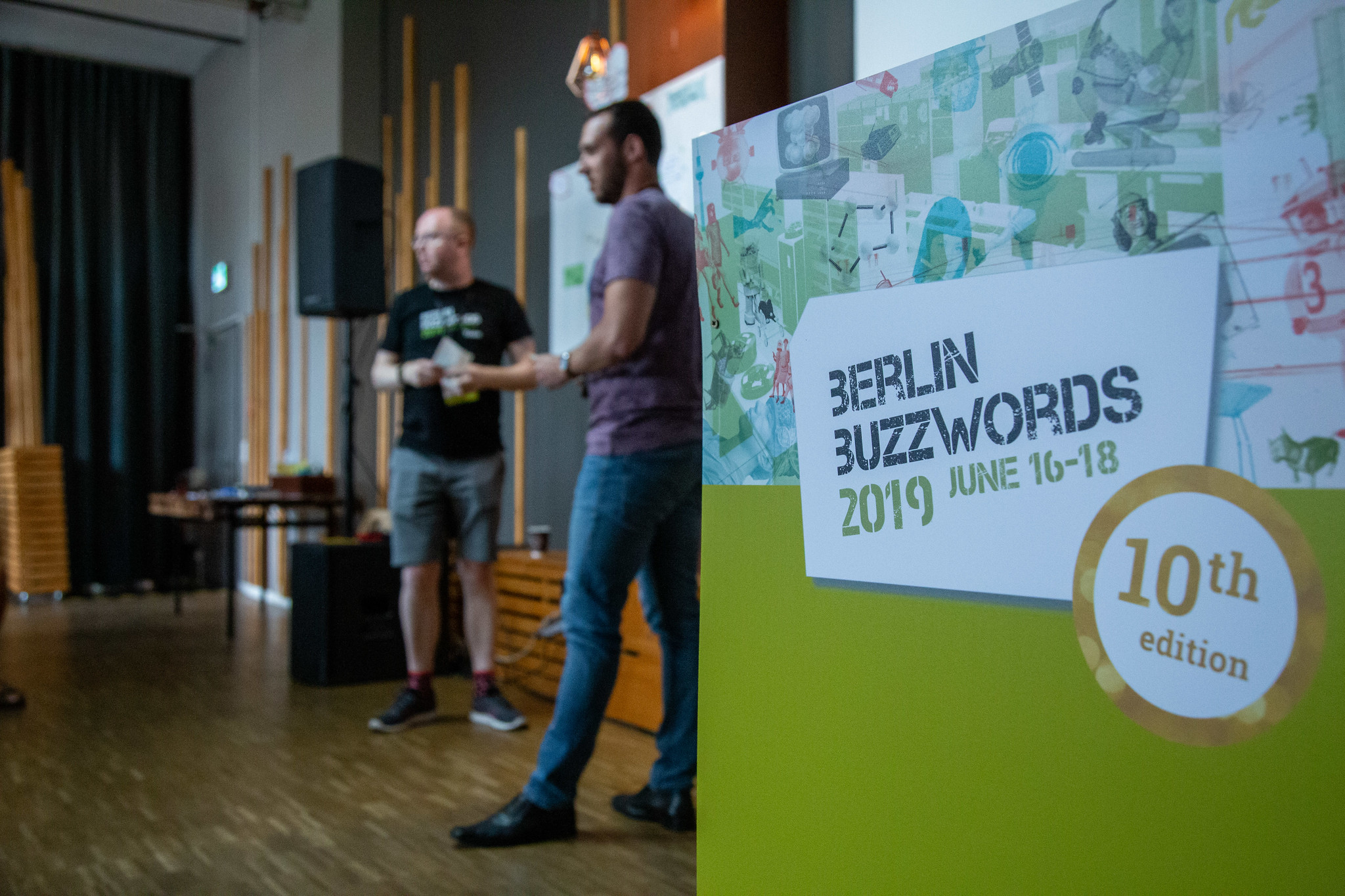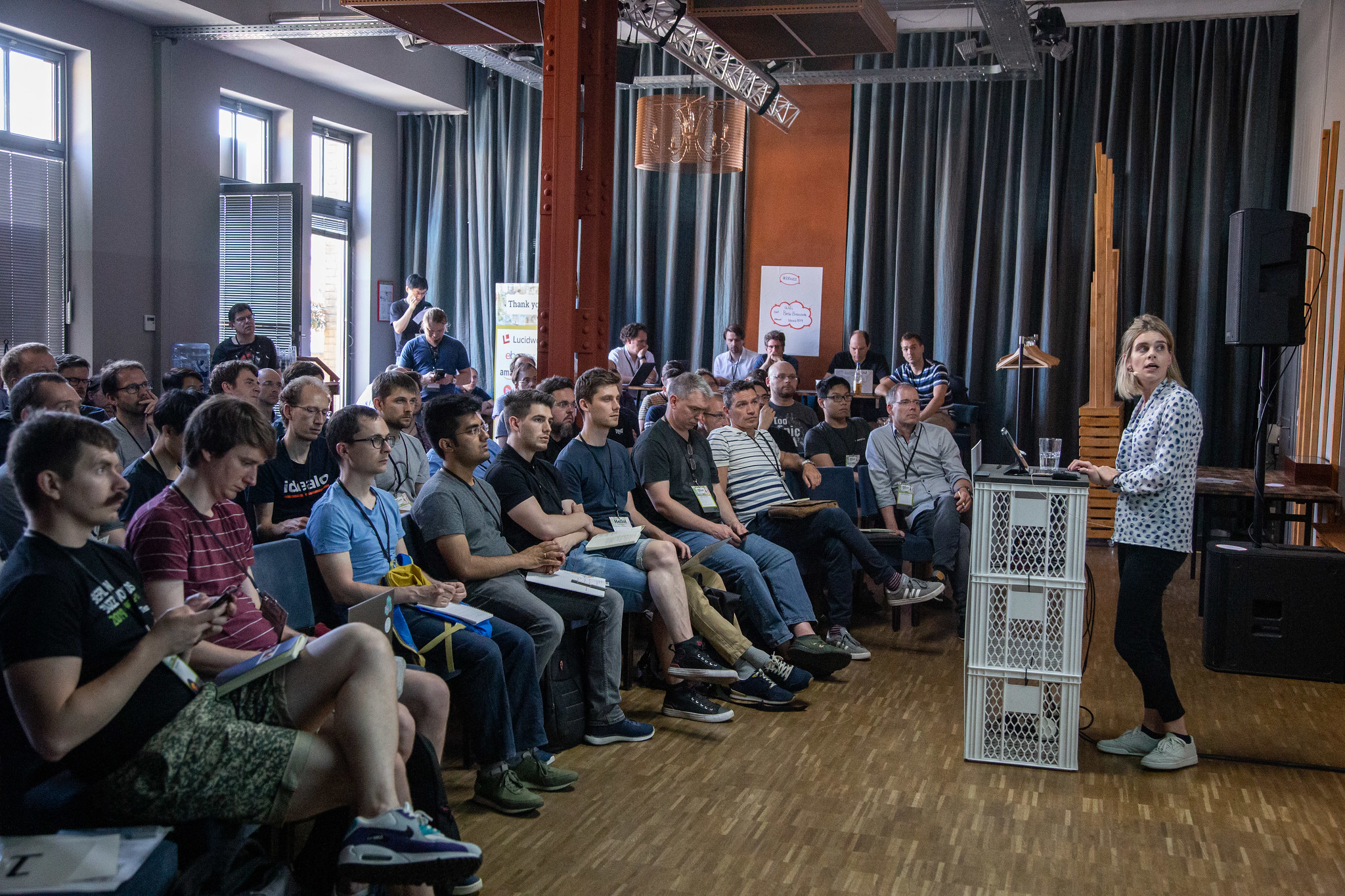This blog post would try to briefly tell the readers – what an ecosystem is, why volunteering for the student-run groups & tech conferences like the Berlin Buzzwords is a good idea and what makes me eligible to speak about this.
There’s a little something we can do to support and improve the ecosystem we live in; and in this blog post, I would try to address a couple of points for the international students in Magdeburg studying Informatics and the students who are connected to me from Calcutta, India.
But first, what’s an “ecosystem”?
An ecosystem is what we are living in; the world at large is an ecosystem where one type of living things supports the others sustain and happily coexist. On a more contextual level, you live in a student ecosystem (if you are a student), a startup ecosystem (if you are a startup), a tech ecosystem or open source ecosystem if you are into technology. You get the idea, right?
Why is an ecosystem important? – because whatever you will become, the ecosystem you are in would be, in some way, responsible. The better the ecosystem, the better your chances of becoming a better version of yourself and becoming more successful. Say, as a student if you have access to people who share your interest or represent various levels of knowledge and experiences in life, who can guide you, you are more likely to take more informed decisions in life.
How can you better the ecosystem? – by being active, taking part in discussions, helping each other, contributing with ideas, brainstorming, interacting and making things work. Not every initiative is funded heavily, so you might need to take some time out and volunteer.
If you are a student of FIN, OVGU, where can you volunteer?
If you are not, skip over to the next section. And if you are, then please know that there is a range of opportunities, one being SI@FIN (Support Internationals at FIN, OVGU): Academic Club and the mentors. You get to work in small teams from creating concepts to executing them, presenting them, interacting with the larger team which is very diverse with students from varied cultures and levels of experience. The framework is set by the faculty.
I head the communications at SI@FIN and my key take-aways would be:
- Scope definition: Working cohesively with the faculty at SI@FIN, I’ve become better at critical analysis and defining the scope of any work I do now.
- Very basic yet important: A joke for you might not be a joke for someone else; a familiar and seemingly harmless word for a Bengali might be very offensive for a person from Nigeria. Germans are not rude, they are up front and after some time, they become very good friends.
- Within the team, the communication needs to be quicker and seamless. There has to be personal space for individuals, space for different stakeholders and the ideas they contribute. Compromise, often, to keep the team together and moving forward. Germany has a very different working culture if compared to India and this is my playground.
There are more student-run initiatives whom I’ve mentioned in this blog post. You could be a part of the initiatives, be active, learning while working and just be better at your soft skills.
But soft skills are not enough in your professional life. While you get the state-of-the-art scientific concepts in your university, the developers/professionals implement them in the real world and that impacts businesses. If you are a job seeker, you need to be updated with what’s latest. This brings us to the Berlin Buzzwords.

Why volunteer for Berlin Buzzwords?
Berlin Buzzwords is Europe’s most exciting conference on storing, processing, streaming and searching large amounts of digital data. It focuses on open source software projects. The 10th edition of Berlin Buzzwords took place from June 16-18, 2019 at Kulturbrauerei.
[Berlin Buzzwords]
While the reasons are numerous, let me list a few of them for you:
- The speakers are people who have significant contribution in open source and in building solutions. You get to listen to them live, ask questions, brainstorm with them at the bar camp and if you get time, discuss newer ideas with them during session breaks. Maybe, exchange contact details and stay in touch.
- Learn from other attendees of similar background how to make your own space in the ecosystem. Do I make sense? I guess I do.
- Know what the companies who have sponsored the events look forward to you, a student of data science. It’s important if you are looking forward to student jobs or internships.
- Make friends with similar interests – it can be speakers, attendees, bartender anyone!
Why spend money and volunteer?
I asked a couple of students around. What I realised is – they do not want to spend money and volunteer for an event in Berlin. I’m not sure what they were talking about and decided not to drag the conversation. Let’s break it down: Travel costs to and from Berlin, food, cost for putting up. While Flixbus makes travel costs negligible, food is free during the conference and a little bit of Couchsurfing can make you get free accommodation. You could possibly bring down the total cost to less than one bottle of Jack Daniels, chips and salted peanuts. For eight hours of volunteering, you get a ticket which otherwise is very expensive for a student. Worth an investment? Yes.

Types of volunteering: You could prefer to sit at a place welcoming attendees and speakers or you could run around a bit helping the organisers. You could become a stage manager, making sure the sessions run smoothly. You could possibly volunteer before and after the event, and concentrate on the two days of the conference.
Types of sessions: The sessions are classified under three tracks: “search”, “scale”, “stream”. Each session/workshop is labelled as “beginner,” “intermediate”, “advanced”. You can check their schedule on their website and I am sure you know where you’d fit in.
I’ve been a volunteer at the Berlin Buzzwords 2019. What’re my top takeaways?
- Knowing the concepts is not enough, to be industry ready, I need to be aware of the technologies and people who are implementing it. It was a little rude shock but an important realisation.
- My interaction(s) with a couple of speakers who work on my area of interest: natural language understanding/search, implementing chatbots. I got to know a little more about what kind of work is on in the industry, the areas where technology fails when implemented to cater to an unspecified target audience.
- My interaction with the product manager(s) and talent manager of the companies that were present on the first day. I asked them very specific and direct questions like “what are your expectations from an intern?”, mainly because I could not manage much time for a conversation. What amazed me is that they gave very specific answers. Awareness of what technologies the company works on is definitely one of the requirements.


Are there more events like this? – Yes. There are hackathons lined up and satellite events by the same organisers. There’s another event coming up which is the Tech Open Air 2019 in Berlin.
What makes me eligible to speak on this?
I got introduced to the idea of an ecosystem back in 2009. Since then, I’ve tried my bit to do in various capacities- as a student, photographer, or just as a volunteer. When I had my own startup “Kolkata Bloggers”, the ecosystem came forward and helped me. In two years span, my collaborators included Facebook, US Consulate Kolkata, Government of Bengal, The Times of India, different literature festivals to name a few. During 2015-2016, we supported the Datascience Summit 2015, NASSCOM Product Conclave 2016, sponsored Mozilla web literacy programmes, and a couple of developers meetup in Kolkata. I’m a firm believer in the ecosystem, contributing to it. It just feels good. I’m whatever I am because of what the ecosystem has made of me.

Magdeburg: Life beyond studies (2). | Anirban Saha.
[…] Berlin Buzzwords: it is about data science and open source; most relevant if you are a student of data science. (Read: Why should you volunteer for these events?) […]